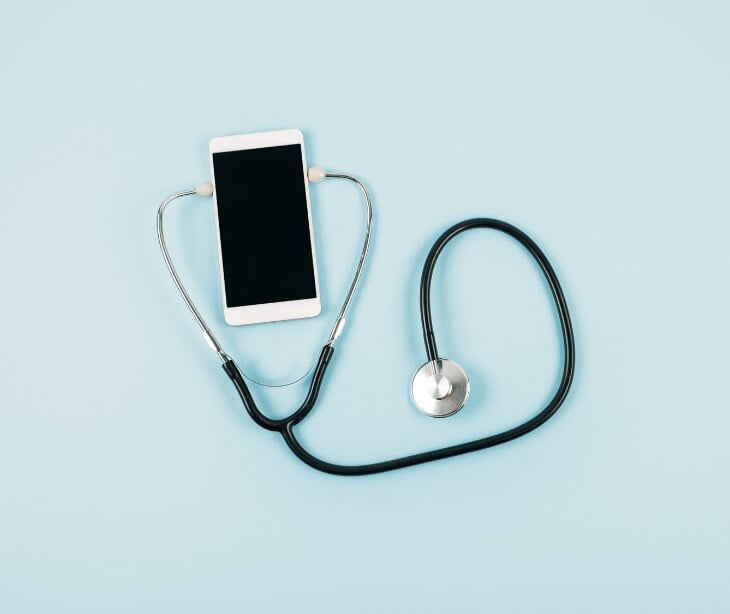
HIPAA compliance challenges in telepsychiatry include using secure communication platforms, maintaining patient privacy in non-traditional settings, protecting data, and obtaining patient authorization.
Understanding telepsychiatry and HIPAA
According to a journal study about digital mental health care, "Telepsychiatry is usually defined as the use of electronic communication and information technologies to provide or support clinical psychiatric care at a distance."
Telepsychiatry allows mental health professionals to provide services like consultations, therapy sessions, and medication management without the need for in-person visits. It can enhance mental health care access, particularly for patients in remote or underserved areas. For providers, telepsychiatry offers the convenience of reaching a broader patient base and continuity of care when in-person visits are not feasible. In telepsychiatry, the following HIPAA rules help ensure patient data is handled securely and confidentially:
- Privacy Rule: Establishes national standards for protecting individually identifiable health information. In telepsychiatry, this means ensuring that any shared or stored patient data remains confidential.
- Security Rule: Requires appropriate administrative, physical, and technical safeguards to ensure the confidentiality, integrity, and security of electronic PHI, which is particularly relevant in telepsychiatry because data is often transmitted over the Internet.
- Breach Notification Rule: Mandates that covered entities and their business associates must provide notification following a breach of unsecured PHI, stressing proactive security measures to prevent violations in telepsychiatry.
HIPAA compliance challenges in telepsychiatry
Securing communication platforms
Not all video conferencing or communication tools meet HIPAA standards. Using non-compliant platforms can lead to unauthorized access to PHI, putting patient data at risk. Healthcare providers must select platforms that offer encryption and secure data storage and are willing to sign a business associate agreement (BAA) to address this.
Ensuring patient privacy
Telepsychiatry sessions are often conducted in environments that may not be entirely private, such as a patient’s home. This increases the risk of unintentional breaches of patient confidentiality. Providers should educate patients on conducting sessions in private and ensure that their work environment is secure. Simple measures, like confirming only authorized individuals are in a session, can protect patient privacy.
Data security
Telepsychiatry involves transmitting sensitive information over the internet, making it vulnerable to interception or unauthorized access. Providers must implement strong encryption protocols and secure login credentials, including multi-factor authentication, to protect electronic PHI. Regular updates to security software and vigilant monitoring for potential threats also maintain data security.
Maintaining compliance with Business Associate Agreements (BAAs)
Telepsychiatry often relies on third-party vendors for services such as video conferencing, cloud storage, and electronic health records (EHR). BAAs with these vendors ensure HIPAA compliance. Providers should regularly review these agreements and conduct audits to verify that all parties uphold their responsibilities to protect patient information.
Related: What is the purpose of a business associate agreement?
Patient consent and authorization
Providers must ensure that patients understand the nature of telepsychiatry, including any risks associated with remote care, and obtain proper authorization for disclosing PHI. Use clear, detailed consent forms and get electronic signatures to help mitigate potential legal and compliance issues.
Read more: HIPAA compliance in online therapy
FAQs
Can telepsychiatry sessions be recorded, and how does HIPAA apply?
Telepsychiatry sessions can be recorded, but the recording must be stored securely in a HIPAA compliant manner, with proper encryption and access controls to protect patient confidentiality.
How can providers ensure HIPAA compliance when using mobile devices for telepsychiatry?
Providers should implement mobile device management (MDM) solutions that enforce encryption, remote wipe capabilities, and secure access controls on any mobile devices used for telepsychiatry.
Can telepsychiatry be conducted over public Wi-Fi networks?
It is strongly discouraged to use public Wi-Fi for telepsychiatry due to security risks. Providers should use private, secure networks or VPNs to protect patient data during sessions.
Subscribe to Paubox Weekly
Every Friday we'll bring you the most important news from Paubox. Our aim is to make you smarter, faster.



